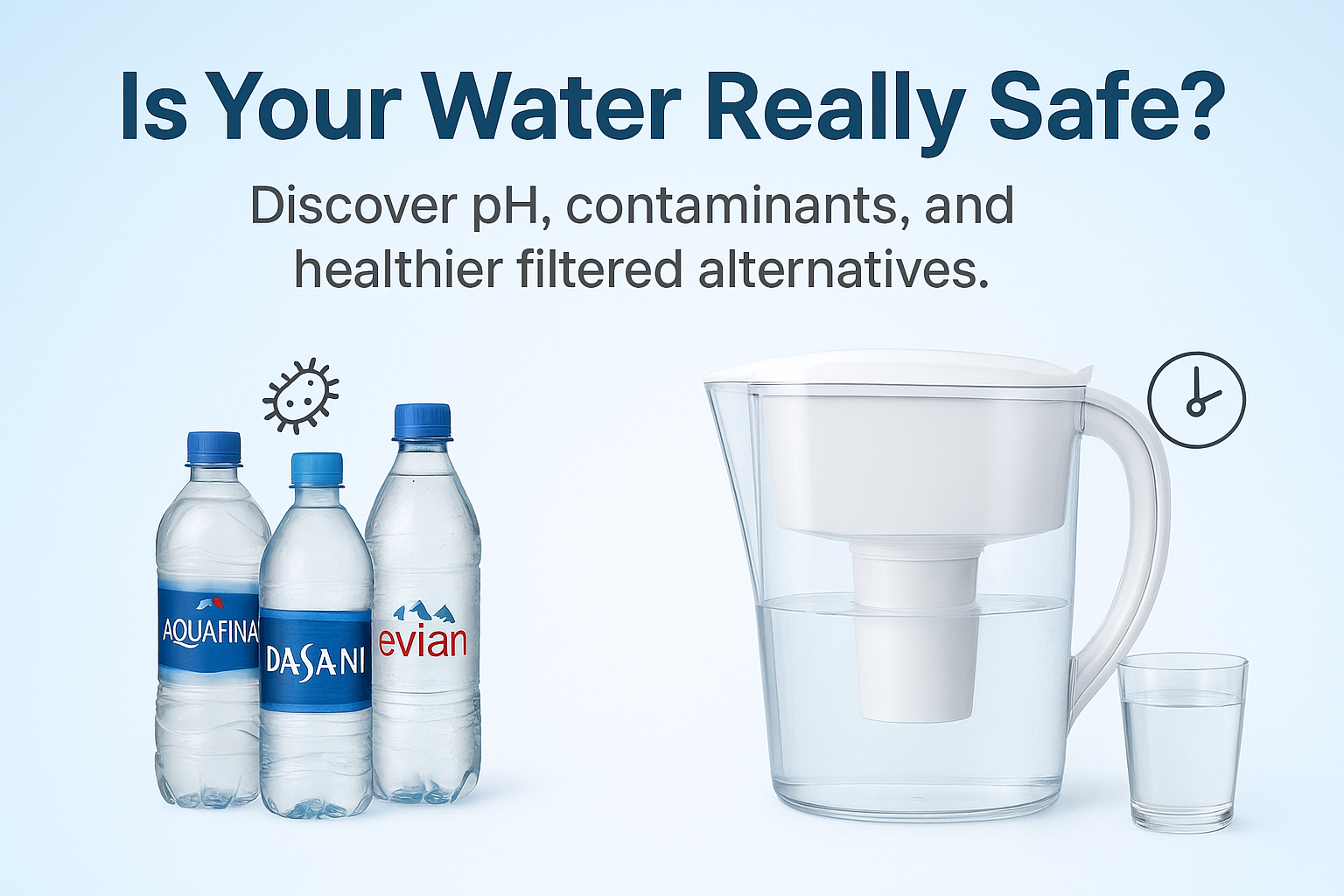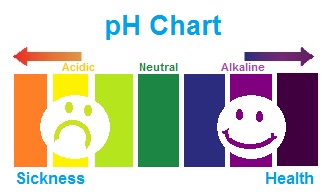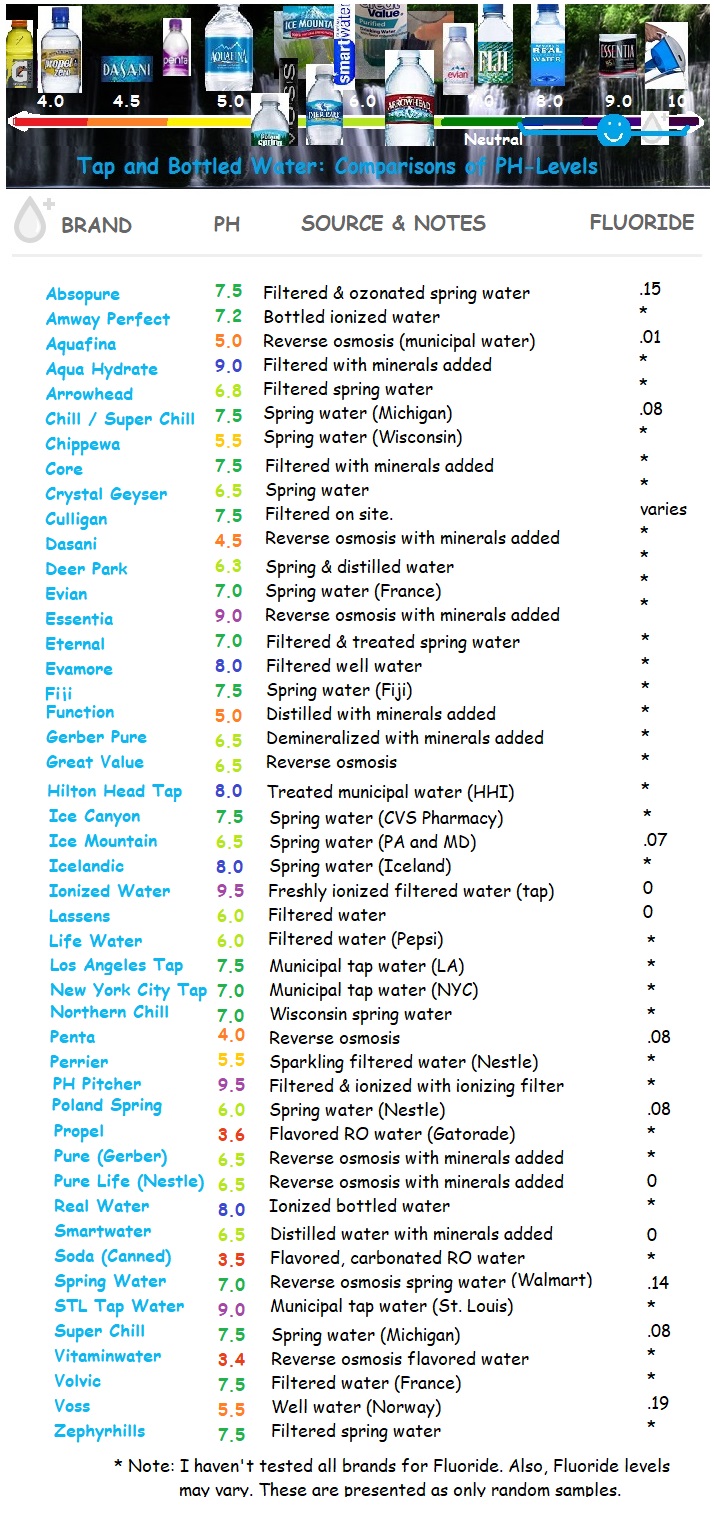
Bottled Water Overview: Brands, Safety, and Contaminants
Understanding the need for filtration is essential. Even bottled water labeled natural spring, reverse osmosis or distilled it has contaminants in it and requires additional filtration to ensure its safety for consumption.
Acidic Ozone in Bottled Water: Health Risks
When water is stored in bottles for months on shelves, and sometimes even out in the sun, it becomes stagnant, which breeds algae and disease, so the bottling companies add acidic disinfectants, i.e., ozone. The pH of bottled water becomes slightly acidic from the ozone.
Plastics, Nano-Plastics & Chemicals in Bottled Water
Plastic bottles themselves are plastic and leach unhealthy elements including dangerous nano-plastics and forever chemicals into the contents. So, despite the claims of purity and healthiness by bottling companies, all bottled water, no matter where it comes from, should be filtered to remove the chemicals and nano-plastics before you drink it.
Nano-plastics are microscopic plastic particles and are unavoidable in the plastic bottle. They cause inflammation, oxidative stress, and other health conditions which underlie diseases. They can be removed with a carbon filter.
Forever Chemicals, PFAS, are in the majority of bottled water brands. Forever chemicals are dangerous because they suppress the immune system and precipitate diseases. Learn how to filter "forever chemicals" out of your water.
Human Waste, Bacteria & Pharmaceuticals Found in Bottled Water
The EWG Environmental Working Group recently found all kinds of other things in bottled water. They found even human wastes, bacteria, and pharmaceuticals in several bottled water brands.
References: EWG Bottled Water Investigations
- EWG Bottled Water Quality Investigation (2008) – Identified disinfection byproducts like chloroform, bromoform, bromodichloromethane, and chlorodibromomethane in bottled water.
- EWG on Pharmaceuticals and Personal Care Products in Water – Highlights the presence of unregulated pharmaceuticals and synthetic chemicals in drinking water, including potential implications for bottled water.
Unhealthy pH of Popular Bottled Water Brands

PH Levels Across Popular Bottled Water Brands
This video shows 20 brands of bottled water, tested for pH.
Testing the pH of 20 brands of bottled water.
Fluoride in Bottled Water: Health Risks & Filtration
Fluoride is not the healthy, excellent, teeth-saving element many big companies and bureaus would have us believe. It's a potentially toxic mineral when consumed in more than trace amounts.
Fluoride is so tiny that it gets into the brain and nervous system, where it does a lot of harm. Its dangers are similar to lead's. Because of this, I take fluoride filtration very seriously. I let it slowly seep through the pitcher or another carbon filter to remove Fluoride.
There are also special Fluoride filters.
Many people buy bottled water because they think the bottling companies are removing Fluoride. In most cases, bottled water still contains Fluoride.
Here's my testing on brands of bottled water containing Fluoride.
Fluoride Testing of Bottled Water Brands vs Ionized Water
Fluoride testing of many popular bottled water brands
Bottled Water vs Tap Water: Safety, Filtration & pH
Municipal water companies are subject to more stringent regulations and often employ more advanced filtration processes compared to bottled water companies. Bottled water is not subject to the same frequency of testing or the same comprehensive reporting requirements as municipal tap water. So, the filtration process water bottling companies use is often inferior to than that of municipal water companies.
References: Municipal Water vs. Bottled Water
- NRDC – Bottled Water vs. Tap Water – Explains the regulatory oversight of municipal water under the EPA and the Safe Drinking Water Act.
- Clearly Filtered – Bottled Water vs. Filtered Water – Discusses FDA regulations for bottled water and differences in testing and reporting compared to municipal water.
- Wikipedia – Water Treatment Facilities – Overview of municipal water treatment processes and multi-stage filtration methods.
Bottled Water pH Data Chart: Brand Comparisons
I visually arranged the brands on this pH chart to show their tested pH levels from lowest (most acidic) to highest. The chart below shows the brands of bottled water in alphabetical order. I also included testing I've done on tap water from several locations.

Brands Tested: Absopure, Amway Perfect Water, Aquafina, Aqua Hydrate, Arrowhead, Super Chill, Chippewa, Core, Crystal Geyser, Culligan, Dasani, Deer Park, Evian, Essentia, Eternal, Evamore, Fiji, Function, Gerber Pure, Great Value, Hilton Head Tap, Ice Canyon, Ice Mountain, Icelandic, Ionized Water, Lassens, Life Water, Los Angeles Tap, New York City Tap, Northern Chill, Penta, Perrier, PH Pitcher, Poland Spring, Propel, Gerber Pure, Nestle Pure Life, Real Water, Smartwater, Soda (canned), Spring Water by Walmart, St. Louis Tap, Vitaminwater, Volvic, Voss, and Zephyrhills.
Alkaline Plus PH Pitcher
The minimal filtration needed to counteract the acidity of ozone is to use an alkaline pH Pitcher (portable water filter). This will remove chemicals, chlorine, and plastic Nanoparticles and raise the pH to about 9.5.
Upgrade Your Water — Ditch Single-Use Bottles for Good
Instead of relying on bottled water whose source & treatment you may not fully control, invest in the Alkaline Plus PH Ionizer Pitcher — a smarter, cleaner, more sustainable way to get alkaline, ionized drinking water at home.
Shop the Alkaline Plus Pitcher →Use Coupon Code: FREE-SHIP | Ships in 24 hours.
Video: Bottled Water Safety & Environmental Impact
We ship hundreds and thousands of square miles worth of plastic wastes around the world (to 3rd world countries) because our landfills cannot contain them all. We need to wake up and become responsible for our planet.
Taste Comparison: Bottled Water vs Tap Water
Bottled water companies spend millions on marketing to convince you that their water tastes better than tap water.
In reality, the opposite is true. Freshly filtered tap water not only tastes cleaner and crisper — it’s also been shown through numerous tests to have superior purity and freshness compared to most bottled water brands.
References: Taste of Tap vs. Bottled Water
- Science in School – “Tap-water versus bottled water” – Reports that in many blind taste tests participants found bottled water and tap water indistinguishable, and sometimes preferred tap water. :contentReference[oaicite:0]{index=0}
- Healthline – “Tap Water vs. Bottled Water: Which Is Better?” – States that in blind taste tests most people can’t tell the difference between tap and bottled water. :contentReference[oaicite:1]{index=1}
- BU Today – “Bottled vs. Tap: Which Tastes Better?” – Presents test results comparing tap and bottled water, with both found to be safe and differences in taste largely due to mineral content. :contentReference[oaicite:2]{index=2}
- Pentair Water Solutions Blog – “Bottled Water vs Tap Water | Taste” – Notes that blind tests found participants couldn’t distinguish tap from bottled water, suggesting similar taste. :contentReference[oaicite:3]{index=3}
ABC's Bottled Water vs Tap
Extreme Filtration in Bottled Water & Trace Minerals
Extreme filtration removes healthy electrolytes from the water. We need these electrolytes for our cells to function correctly, and they often take time to come by. It's far better to consume the electrolytes naturally dissolved in water.
Extreme Filtration Strips Your Water of Essential Minerals
Many highly purified waters remove beneficial electrolytes and trace minerals — nutrients your body needs for healthy bones, joints, and muscles. Water stripped of these minerals can even pull minerals from your body, especially if consumed in large quantities.
The Alkaline Plus PH Pitcher gives you the best of both worlds: advanced filtration that removes contaminants, while keeping naturally occurring minerals intact. Enjoy clean, safe, and truly nourishing water that supports your overall health.
Shop the Alkaline Plus PH Pitcher →Many trace minerals found in water should stay in the water. If you remove them with extreme filtration then the water will act as a sponge for minerals later on. Bones, joints and muscles need the dissolved minerals from the water, and they certainly do not need to lose their minerals.
References: Importance of Trace Minerals in Water
- National Research Council – "The Contribution of Drinking Water to Mineral Nutrition in Humans"
Highlights that drinking water can provide a nutritionally significant amount of magnesium, especially in areas with high magnesium concentrations in water. Magnesium is crucial for various bodily functions, including muscle and nerve function.
- PMC – "The Role of Low Mineral Water Consumption in Reducing Health Risks"
Discusses how reverse osmosis systems, while purifying water, also remove essential minerals like calcium and magnesium, which are vital for health.
- Aquasana – "Does Reverse Osmosis Remove Minerals?"
Explains that reverse osmosis filtration removes healthy minerals such as calcium, magnesium, and sodium from water, which can reduce its health benefits.
- Medical News Today – "Is Mineral Water More Healthful? Benefits and Side Effects"
States that mineral water contains calcium, which helps promote bone strength, and that the body deposits new bone tissue in place of old bone tissue that breaks down.
- Trace Minerals – "Six Trace Minerals Benefits You Need To Know"
Details how trace minerals offer a range of health benefits, including strengthening bones and teeth, improving immune function, enhancing cardiovascular health, boosting metabolism, and supporting mental health.
Dental Health & Bottled Water pH Concerns
A recent research study by the Dental Hygienists' Association showed that bottled water tested even more acidic than the bottling company reported. The study showed that dental health relies on a balanced pH diet.
References: Bottled Water pH & Dental Health
- Wright KF. “Is Your Drinking Water Acidic? A Comparison of the Varied pH of Popular Bottled Waters.” American Dental Hygienists’ Association, J Dent Hyg. 2015;89 (Suppl 2):6–12. – Found that most bottled waters tested had a more acidic pH than the values reported by the manufacturer. :contentReference[oaicite:1]{index=1}
- Pacheco A, Kim D. “Is your favorite bottled water affecting your (and your patients’) oral health?” RDH Mag. July 10 2024. – Notes that some bottled waters have pH levels below the critical threshold for enamel demineralization (pH ≈ 5.5), raising concerns for dental erosion. :contentReference[oaicite:2]{index=2}
- Morgado M, Ascenso C, Manso A. “pH analysis of still and carbonated bottled water: Potential influence on dental erosion.” Nutrients. 2022. – Found that a meaningful percentage of bottled water brands had mean pH values below enamel critical dissolution levels, suggesting erosive potential. :contentReference[oaicite:3]{index=3}
Hard vs Soft Water: Health Benefits and Risks
Hard water is healthier for you than soft water. It contains lots of dissolved calcium and other minerals. In fact, people who live in hard-water areas are less likely to get heart disease. Hard water has a positive influence on cardiovascular health, liver health, and general body health. Here are a couple of reports about it:
References: Hard Water, Mineral Content & Cardiovascular / General Health
- Nerbrand C., Agréus L., Lenner R.A., et al. “The influence of calcium and magnesium in drinking water and diet on cardiovascular risk factors in individuals living in hard and soft water areas with differences in cardiovascular mortality.” BMC Public Health. 2003;3:21. – Found significant correlations between calcium content in water and major cardiovascular risk factors among residents of hard vs. soft water areas. :contentReference[oaicite:0]{index=0}
- “Potential health impacts of hard water: a review of literature.” Nutrients. 2013;5(8): (Article) PMC 3775162. – A review concluding that hard water may contribute to mineral intake (calcium and magnesium) and could influence cardiovascular mortality. :contentReference[oaicite:1]{index=1}
- “The Hardness of Drinking Water Negatively while Socio-Economic Deprivation Positively Correlate with the Age-Adjusted Mortality Rates due to Cardiovascular Diseases in Hungarian Wine Regions.” Int J Environ Res Public Health. 2019;16(18):3437. – Found a significantly negative correlation (i.e., harder water associated with lower CVD mortality) in a population-based study of >200,000 persons. :contentReference[oaicite:2]{index=2}
- Sharrett A.R., “Water hardness and cardiovascular disease: elements in water and human tissues.” Sci Total Environ. 1977;7(3):217-226. – Early research suggesting that residents of hard-water areas may have raised tissue magnesium levels, possibly influencing cardiovascular health. :contentReference[oaicite:3]{index=3}
- The British Regional Heart Study: “Hard drinking water does not protect against cardiovascular disease: new evidence from the British Regional Heart Study.” Eur J Cardiovasc Prev Rehabil. 2008;15(2):185-194. – Found **no** substantial protective effect of water hardness (calcium/magnesium) on coronary heart disease or cardiovascular disease mortality in a large cohort. :contentReference[oaicite:4]{index=4}
Video Guide: Best Ways to Filter Water at Home
Visit my Water Filtration Basics page.
Water Ionizers: Health Benefits & Filtration Advantages
A water ionizer is a unique machine, with many health benefits associated with it.
Unlock Healthier, Mineral-Rich Water at Home
Most bottled water is stripped of essential minerals your body needs. Bones, joints, muscles, and overall health rely on natural electrolytes and trace minerals — nutrients that extreme filtration removes.
With a Water Ionizer, you can enjoy clean, refreshing water without losing the minerals your body craves. Taste the difference and support your health with naturally ionized, mineral-rich water.
Discover Water Ionizers & Filters →Cost Comparison: Water Filters vs Bottled Water
This chart clearly shows that bottled water is far more expensive over time than using a quality water filter or water machine. Switching to a filter or ionizer not only provides cleaner, healthier water but also saves you a significant amount of money in the long run.

Frequently Asked Questions About Bottled Water
Is bottled water safer than tap water?
Not necessarily. Municipal tap water is subject to stricter testing and regulations under the EPA than bottled water is under the FDA. Many bottled waters also contain contaminants such as microplastics, fluoride, and trace pharmaceuticals. Proper filtration at home can provide safer, mineral-rich water.
Does bottled water lose minerals during filtration?
Yes. Many bottled waters undergo reverse osmosis or extreme filtration that removes beneficial minerals like calcium and magnesium. Water stripped of minerals may act as a “mineral sponge” in the body if consumed in large quantities.
Can bottled water be acidic?
Yes. Many bottled waters have a slightly acidic pH due to ozone disinfection and prolonged storage. Drinking acidic water over time can affect dental health and overall body pH balance.
Are plastics and nano-plastics in bottled water harmful?
Plastic bottles can leach chemicals, including nano-plastics and PFAS (“forever chemicals”), which are associated with inflammation, oxidative stress, and potential long-term health risks. Filtering bottled water at home can reduce exposure to these substances.
How does bottled water compare to using a water filter or ionizer?
Home water filters and ionizers remove harmful contaminants while preserving beneficial minerals. They are more cost-effective than bottled water and provide cleaner, mineral-rich water consistently. Products like the Water Ionizers or the Alkaline Plus PH Pitcher are designed to do just that.
